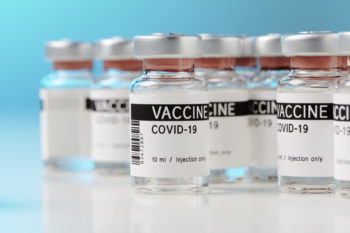
Dr. Ed Ades works with consulting firm Booz Allen Hamilton on its health team. Ades, who lives in Atlanta, previously was with the CDC for more than 30 years, leading development and implementation of successful projects and programs in infectious disease prevention. He has extensive experience in the field of immunotherapy and vaccine development.
Ades answers questions about COVID-19 vaccine development for Georgia Health News:
What does a vaccine do?
A vaccine is a form of medicine designed to protect against infectious agents (pathogens) by exposing the body to a harmful virus or bacteria in a safe manner. This allows a person’s immune system to formulate defensive strategies, generally by producing antibodies and T cells (including memory T cells) specific to the disease. After getting vaccinated, you develop immunity to that disease, without having to get the disease itself.
Instead of treating a disease, a vaccine is designed to keep a person from getting the disease. Generally, a vaccine is considered successful when it prevents disease at the individual and population levels.
How does a vaccine protect the population? What is herd immunity?
Not everyone can or will be vaccinated. Individuals with underlying health conditions that weaken their immune systems, or those who have severe allergies to certain elements in a vaccine, may not be able to take the vaccine. But even if not everyone within a community gets vaccinated, the presence of large numbers of vaccinated people makes it harder for a disease to spread. The pathogen keeps running into people who are immune. In this situation, even unvaccinated people may be somewhat safer because they have a reduced chance of encountering the pathogen.
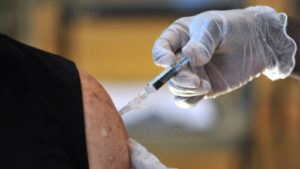
When enough people in a particular population become immune to a disease (as through vaccination), the pathogen can’t find enough vulnerable people to be able to spread effectively. This is called herd immunity. For COVID-19, herd immunity requires that about 60 percent of people to be immune. (A higher percentage is needed to achieve herd immunity from some more contagious diseases.)
What are clinical trials?
All new vaccines go through a rigorous process from conception to development to licensure, and they are highly regulated by the U.S. Food and Drug Administration. In the pre-clinical phase, researchers evaluate the disease in a laboratory setting. Vaccines are often tested on animals first to get an idea of how safe and effective they are. After a period of data review and FDA approval, a vaccine will then be tested on humans in clinical trials.
There are four phases of clinical trials. If safety problems arise in any phase, the trials can be stopped. Phase I involves a relatively small number of human volunteers, and the emphasis is on determining the safety of the vaccine. Phase II involves a considerably larger number of volunteers. Phase III involves many volunteers, sometimes in the tens of thousands. By this point, researchers focus not just on safety but on how well the vaccine works within a population. The FDA can approve a vaccine or other drug after Phase III, but if it does, there will still be a Phase IV, with populations who get the drug being tracked, often for several years, to look for potential problems such as side effects.
Because of the health emergency caused by the pandemic, the process of developing a covid-19 vaccine has been speeded up. U.S. health agencies are adamant that no corners have been cut in producing a safe, effective vaccine.
How many vaccines are currently in development for COVID-19?
Well over 100 vaccines are in various stages of development worldwide. There are several reasons for this. First, it is not viable for one company to produce enough doses of a vaccine for everyone who needs or wants one. With over seven billion people across the globe – numerous manufacturers will need to be involved. Furthermore, not all of us will be able to receive the same type of vaccine. Development of multiple vaccines will ensure safety and efficacy in individuals of all ages, demographics, and underlying medical conditions. If you have additional questions on the progress of COVID-19 vaccine trials, please see the New York Times Coronavirus Vaccine Tracker.
Various claims have been made about the effectiveness of COVID-19 vaccines developed in different countries. Pfizer said this week that its vaccine has shown 95% effectiveness. And another American company, Moderna, has said its vaccine is 94.5% effective.
What happens to those vaccine candidates now?
Vaccine studies generally measure real-world and likely worst-case-scenario benefit for the overall population being protected. The two biggest questions that are still unknown are: How long the effect lasts, and how well the vaccine works to prevent severe cases of COVID-19.

Pfizer and the German company BioNTech have said that on Friday (Nov. 20) they will request emergency use authorization for their vaccine candidate. It’s the first time that such regulatory approval has been sought for a COVID-19 vaccine in the United States. Moderna plans to apply to the FDA for authorization after it gathers more safety data later this month.
Emergency use authorization from the FDA is not the same as full approval. An EUA allows products to be used under particular circumstances before all the evidence is available for approval.
Can mutations in the virus that causes COVID-19 make it harder to develop a vaccine?
Current research indicates that, while the virus can mutate, it does so at a very slow and inconsequential rate. Researchers remain hopeful that mutations will not disrupt vaccine development timelines. This is because clinical trials are focused on isolating and targeting sections of the virus’ spike protein that have not been impacted by mutations to date.
When will a COVID-19 vaccine be available in this country?
COVID-19 vaccines will become available once they are demonstrated to be safe and effective in Phase III clinical trials, licensed by the FDA and manufactured and disseminated across the country. Once enough data is available to validate a vaccine’s efficacy, and no evidence of severe adverse reactions is detected, a meticulous and transparent approval process should go into effect.
In the case of COVID-19, certain groups (e.g., health care providers, essential workers, some particularly vulnerable populations) will likely have access to a vaccine first.
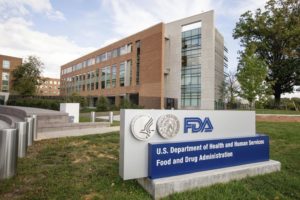
How long will it take for the general public to be vaccinated once a vaccine is approved?
This is not clear. A reasonable estimate, however, is six months to a year following FDA approval. This timeline depends on how quickly doses of a vaccine can be manufactured and distributed.
Will there be a vaccine for my children?
Currently, the major vaccine trials are solely focused on adults, who are generally hit harder by the disease. As clinical trials are expanded, the inclusion of children will lead to data on the safety and efficacy of vaccines that can be applied specifically to kids.
How long will immunity/protection last after a person is vaccinated?
This is a vitally important question. The answer is still unknown, but active COVID-19 trials are being held to find out. Ideally, you would require only one vaccination, which is the case with vaccines for some other diseases. Some COVID vaccines may require a booster dose after several years, or people may need to get the vaccine on an annual basis, as is the case with the flu vaccine.
Once it’s administered, how long before the vaccine takes effect in the body?
In most cases, it takes one to two weeks for immunity to develop following vaccination. However, this activation time for a coronavirus vaccine will depend on what type of vaccine is licensed by the FDA.
If I have had COVID-19 and recovered, do I need to get a vaccine?
When individuals recover from certain infections, such as measles or mumps, they are protected against reinfection and do not require future vaccinations. For other diseases, such as the flu, it is important to be vaccinated annually whether you’ve had the disease or not. This provides protection against several strains of the disease.
We do not yet know how long people are protected against reinfection after having COVID-19, so it’s not clear whether such individuals will need to be vaccinated. If protection only lasts for several months, vaccination will provide an added layer of protection. Moreover, vaccination does not pose any additional risk to those who have had COVID-19 and recovered.
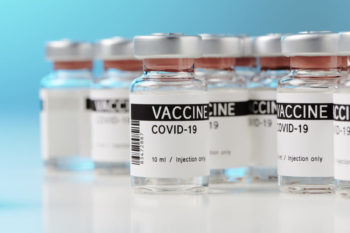
Is it possible to get COVID-19 from the vaccine?
No. Vaccines against the virus that causes COVID-19 use inactivated or weakened elements of the virus, such as a spike protein or gene from the virus. These parts of the virus cannot cause COVID-19.
If you are vaccinated against COVID-19, is it still possible to spread the virus to those around you?
It is suspected that COVID-19 vaccines will protect against cases of the disease. If this is true, then it is highly unlikely you could still transmit the virus after being vaccinated – however, experts suggest that we will continue to practice physical distancing and wear masks for some time following the release of a vaccine.
If more than one vaccine becomes available, could taking two different vaccines boost the effectiveness?
We likely won’t have a good answer to that question until vaccines are approved by the FDA. The possibilities are being studied, and when the time comes, you would need to rely on the best medical advice.
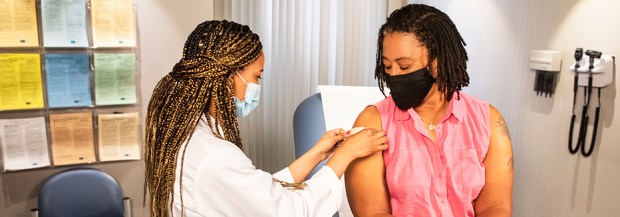
Should I get the flu shot this season?
Yes. The flu and COVID-19 are different diseases but with similar symptoms. Though we don’t know precisely how the two viruses interact, it is possible to be infected with both at the same time. In such cases, you will probably be sicker than with only one. Moreover, flu season puts an added burden on the health care system, which is already battling COVID-19. If as many people as possible get the flu vaccine, lowering the percentage of Americans with influenza, that burden will be greatly reduced.
Once a COVID-19 vaccine is available, will we still need to wear masks and practice social distancing techniques?
Yes, at least until more of the population is vaccinated and we are certain that the vaccine offers long-term protection. During the initial stages of vaccinations, there will not be enough doses for everyone, so transmission of the virus will still be possible.
How much will it cost to get vaccinated?
The federal government will cover the cost of the vaccine. Health care providers may charge an office visit fee, or a fee to administer the vaccine. In such cases, health insurance will most likely cover those costs.
The views, thoughts, and opinions expressed in the text belong solely to the author, and not necessarily to the author’s employer, organization, committee or other group or individual.

